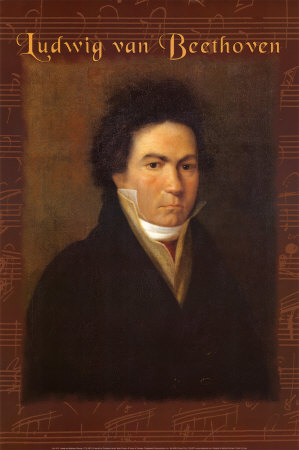We have to hear from Baltimore that Phil Munds has won the #1 horn seat at the Royal Opera House.
Covent Garden never tell anyone anything.

Must be time for us to do another world’s worst press office list.
We have to hear from Baltimore that Phil Munds has won the #1 horn seat at the Royal Opera House.
Covent Garden never tell anyone anything.

Must be time for us to do another world’s worst press office list.
Hoffmann’s off.
Will this strike never end?
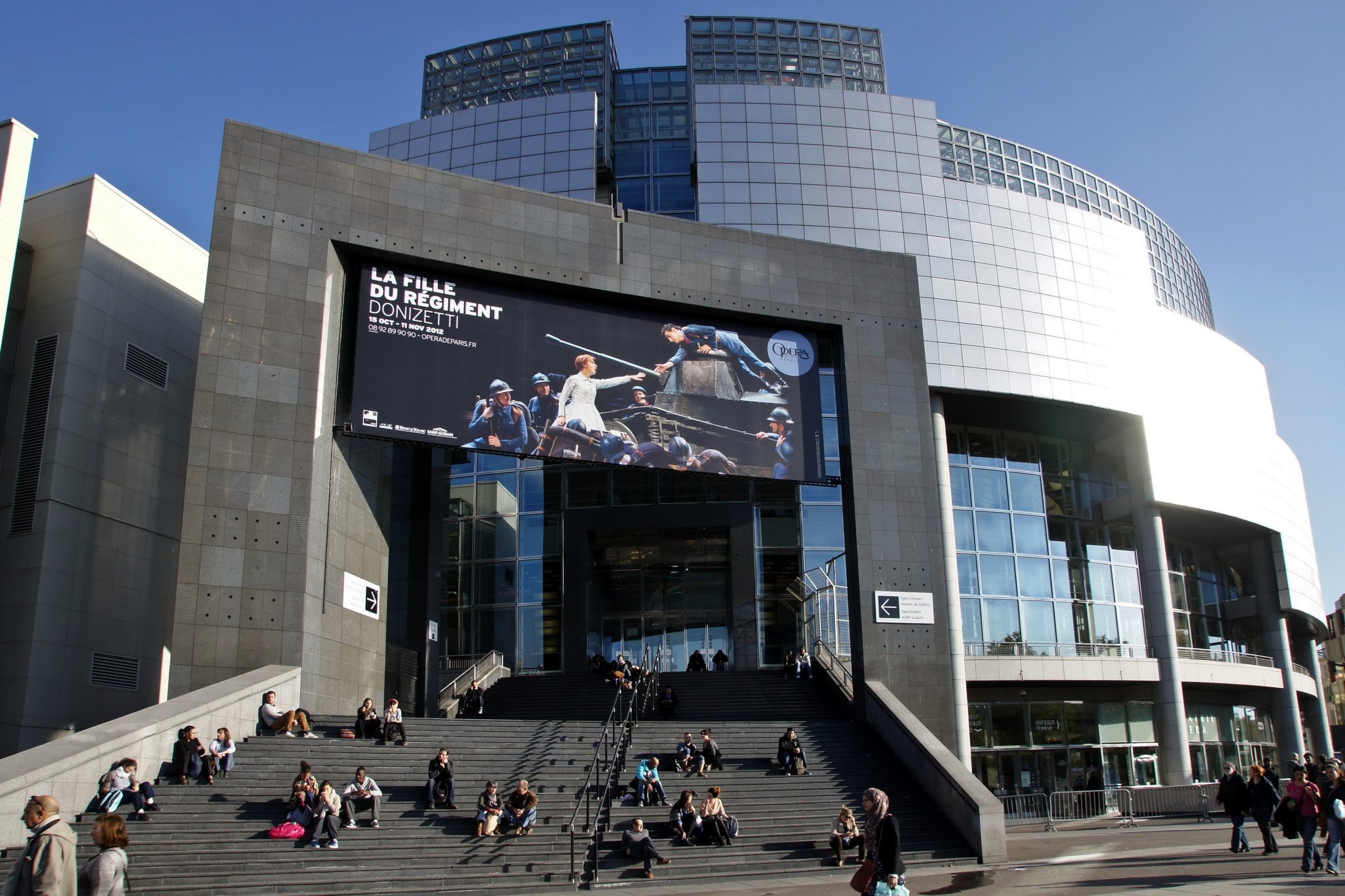
This is the official version:
The Diocese of Westminster is undertaking a strategic review of the role of sacred music in the mission of Westminster Cathedral. The musical tradition of Westminster Cathedral, in its excellence, constitutes a crucial and powerful part of the mission of the Cathedral. …
Cardinal Nichols said: ‘In welcoming this strategic review of the role of sacred music in the mission of Westminster Cathedral, I thank most sincerely those who are going to conduct it. They do so with my full confidence.
‘Our musical heritage is precious and this strategic review is an opportunity to strengthen this heritage and look forward to the next ten years with confidence.’
Behind the scenes, the Church is in a flap over Martin Baker’s disappearance as head of music, precipitating howls of outrage from parents, composers and the musical community.
The Tablet is calling for the head of school to be sacked.
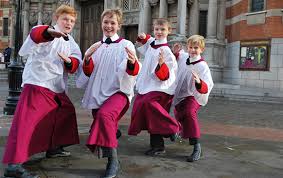
It has just been announced that Netflix will co-finance Bradley Cooper’s Leonard Bernstein biopic, produced by Steven Spielberg, Todd Phillips, and Martin Scorsese.
Presumably no major studio thought it was viable.
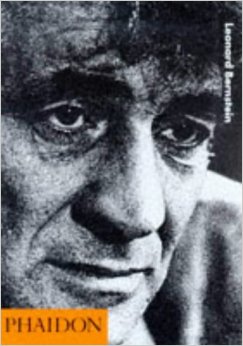
The singer, who turned 79 today, has booked himself in for Donizetti’s Belisario at Bergamo in November.
It will be his 152nd role.
Ridiculous.

With Denis Matsuev, Putin’s musical emissary
The prompter will be working overtime.
Anne Sophie Mutter tells us:
Musical heaven in the Musikverein Wien. What marvellous playing of my great colleagues of the Vienna Philharmonic / Wiener Philharmoniker. And then the music of John Williams … standing next to him is inspiring and intimidating at the same time!
I am posting this from Kansas City; we had to rush to the airport after Sunday’s concert to fly to the US. But these iconic tunes of his are in my head (and heart !) …
Tonight is my first Beethoven recital here with Lambert – Vienna lives on!!! And so does the great art of John Williams.
The way he was greeted and celebrated in Vienna was one of a kind. He for sure has the coolest most passionate fans ever! Thank you all for the unforgettable weekend we spent together.
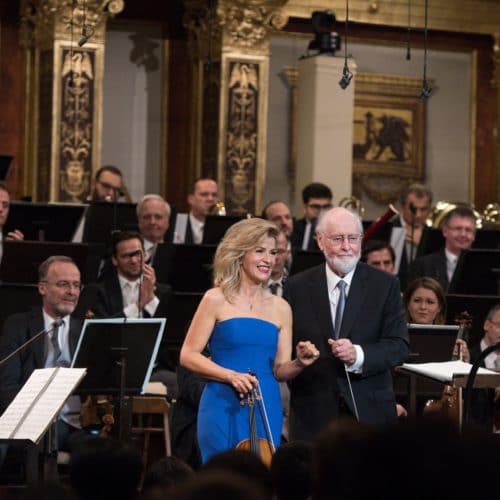
Foto © Terry Linke / Deutsche Grammophon
The son of Gabriella Starker-Saxe has confirmed her death from cancer.
Gabriella was Janos Starker’s only child from his first marriage.
She lived in Toronto, had a career with the US State Department and worked with children with autism. At Starker’s 75th birthday, ‘she described a father who demanded the utmost precision and clarity in her words when speaking with him.’

Starker died in 2013.
A month ago, Gabriella posted: I usually keep my sharing to the happy stuff, whether it be joy with music or JP or travels. It’s hard to share the sadder side of things, but there comes a time when it’s impossible not to. I don’t want those I love to be in the dark about where I’m at and my cancer prognosis is not looking good… I’m being well taken care of and I love you all
1 Valery Gergiev – no-show for Lohengrin in Vienna
2 Jun Märkl – huffs off over an airline ticket
3 Christophe Rousset – got rough with Houston players
4 Emmanuel Krivine – goes missing on tour
5 Paavo Järvi – can’t speak, won’t speak
6 Daniel Harding – gone flying
….all in a week’s work.

The international German bass Rene Pape has issued a public condemnation of the Azeri tenor Yusif Eyvazov for allegedly refusing to sing with an Armenian soprano Ruzan Mantashyan at the Dresden Opera Ball.
Eyvazov denies that it was his refusal that caused Mantashyan to be fired, but she is threatening to publish emails, and there is no denying thar she was dropped from the show.
Here’s Pape:

Usually I do not comment such things, but as a Dresden native and as an ambassador of music, art and antiracism, I have to tell my esteemed colleague Yusuf not to bring any hate into my town or somewhere else. To be able to make music means to be able to build bridges, not to destroy them… To be invited to sing here and to make an audience happy is an honor and a privilige! You should be proud and happy to be asked to be a part of it.’
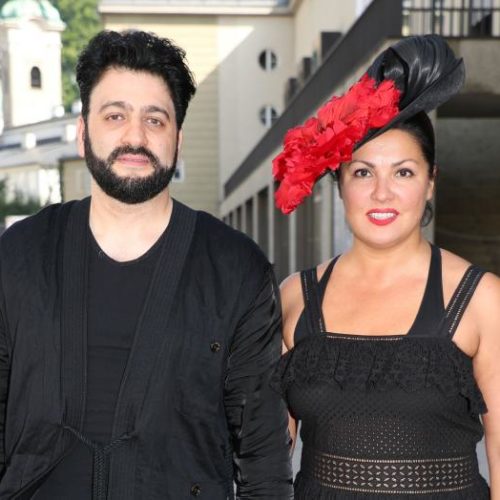
Julian Lloyd Webber threatened this week to resign as head of the Royal Birmingham Conservatoire if the Government won’t give him enough money to do a proper job. The facts are straightforward. London has four conservatoires – the Royal Academy, Royal College, Guildhall and Trinity – none of which is, or has ever been, a world beater.
The rest of the country – Birmingham, Manchester, Cardiff, Scotland – struggles on with leftovers. If Boris Johnson is as keen as he sounds on the regions, he should merge three London cons and spend the cash in Brum.
Christopher Morley, music editor of the Birmingham Post, surveys the miserable state of play for Slipped Disc:

Just before Christmas I had lunch with Julian Lloyd Webber at the excellent San Carlo restaurant at the top of Temple Street, and in a low voice beneath the acoustic bustle of excited, festive patrons, he confided to me his fears about the future of Royal Birmingham Conservatoire, of which he is Principal.
“We’re getting no funding, compared with the London institutions, as we are considered a component within a university. And Birmingham City University can’t give us what we need for the upkeep of these state-of-the art facilities.
“I’m not prepared to preside over the decline of everything we’ve built up.”
I was shocked, saddened, but determined to preserve these confidences.
Now Julian has gone public, firstly on the Slipped Disc website checked throughout the world (and one which, incidentally, is incredibly supportive of the CBSO), and now in an interview with the Observer newspaper, so I feel free to share my own thoughts about this regrettable situation.
I have been intimately involved with the Royal Birmingham Conservatoire in its previous incarnations since I came up as a music undergraduate in the University of Birmingham in 1966. The then Birmingham School of Music was housed in a semi-demolished building, previously home to the YMCA and the Midlands Electricity Board in Dale End, and I sensed an atmosphere of stoical depression about the place.
The move to brand-new premises in the heart of the city in Paradise Place, opposite the Town Hall, brought a much-needed boost to morale of staff and students, and as the newly re-christened Birmingham Conservatoire, and now part of the University of Central England (previously the City of Birmingham Polytechnic), the institution began to thrive, attracting students from Europe and the Far East. I taught there for 22 years.
Redevelopment of Paradise Circus instigated the need for the Conservatoire to find a new home, and eventually Birmingham City University (previously UCE) found and funded a site on Eastside, the campus upon which BCU was assembling all its faculties, and invested an amazing amount of money (£57million) to create a state-of-the art building whose facilities would be the envy of conservatoires worldwide.
Just as all this was coming to pass, Julian Lloyd Webber was appointed Principal, an internationally-renowned performer bringing immense enthusiasm and charisma as figurehead to this vibrantly reborn centre of musical excellence. Thanks to the patronage of HRH Prince Edward, Earl of Wessex, the once Birmingham School of Music was now granted the accolade of being renamed Royal Birmingham Conservatoire in the autumn of 2017 (just in time for the presses of my history of the institution to be stopped so that its title could become “Royal Birmingham Conservatoire: Inspiring Musicians since 1886”).
A glittering array of international performers and composers was attracted to join the teaching staff. London colleges which had previously sneered at the provincial status of what they had perceived as a second-rate offering for students now became jealous of its international standing, and students were jostling to be accepted here ahead of their second choice of the great Juilliard School of Music in New York.
All of this is now in danger of crumbling, thanks to central funders concentrating on metropolitan institutions (and I suspect finding excuses to ignore those outside the London magic circle), and to Birmingham City University’s inability to provide the funds for the servicing and upkeep of the state-of-the-art facilities installed in the building it so expensively funded.
Are we to be left with a Marie Celeste of a Royal Birmingham Conservatoire, all the top-ranking crew and equally top-ranking students vanished? Are we going to lose the inspirational and attractive figurehead which is Julian Lloyd Webber (surely the most renowned Principal of all our conservatoires)?
At this turning-point in its history the Royal Birmingham Conservatoire needs a boost to its funding. What it brings to the city in terms of the student economy and general prestige is too valuable to be cast away. Julian Lloyd Webber came and committed himself to Birmingham. Birmingham must do the same to him.

We asked Blaise Malaba, the new Congolese recruit to the ROHI training scheme, to tell us how he got from central Africa to a major opera stage. Here, for the first time anywhere, is Blaise’s story in his own words:
Born in Kisangani, Democratic Republic of Congo, in military family. Father is a major General in the Congolese army.
I grew up in a military camp and that is where my singing journey started. I was part of chorus named Bolingo in the parish of St Corneille, there we used to mass in Lingala (one of the national languages in Congo). Then I join the choir named Chœur Notre Dame de Grâce in the parish of Notre Dame de Grâce, that was à sort classical chorus, there we were singing Latin and French mass. Also we mainly sung borocco sacral music such as Messiah, Israel in Egypt, Bach’s magnificat, Mozart’s requiem and many others. That’s what we knew about these composers. Nothing to do with Opera at that time.
At some point I decided to go to Moscow to study economics, that’s where I learned Russian, then I received a scholarship to study in Lviv (Ukraine) at Ivan Franko National University of Lviv, where I studied international economic relations, while being there, I also joined the students’ choir, which was quite new and strange for Ukrainian to see a African interested in classical music.
The conductor was Oksana Melnychuk and she was kind to offer me an audition, then I joined her choir as a bass. One day she decided to give me a solo line in an Ukrainian song that we were rehearsing for a concert, I sung it and everything went well. After that she told me that I have a nice voice but I must see a singing teacher, again she was the one to introduce me to my first singing teacher, the Ukrainian baritone Orest Sydyr. I started to take some private vocal lessons whenever I had time and money. After six months of work, I did my first recital and took part in my competition in Ukraine. Then I kept having lessons with Professor Bohdan Bazylykut also at Ivan Franko National University of Lviv, the one day à saw a video of BBC Cardiff Singer of the world on YouTube, at that I started to be familiar with Opera but I did not know more about the business or how the opera works, I just took a risk to apply for BBC Cardiff Singer in 2015 and in my great surprise I was selected and made it up to the final round. That’s when my parents started to look at singing seriously.
Being in that competition, I met Dame Kiri Te Kanawa who was also surprised to see a Congolese interested in opera. She suggested me to take part in her Masterclass (the video is on YouTube) and at some point I met the head of the Royal Welsh College of Music and Drama, at that time it was Dame Hilary Boulding who asked me a very simple question: would you like to keep singing? I sayed yes, but I don’t have enough money for study singing as I was doing my studies in Ukraine. She told me to get in touch with her when I’m back in Lviv and that’s what I did. Then the head of the opera course, Angela Livingston who is a panelist in Cardiff Singer, got in touch and invited me for a week of coaching at Royal Welsh College of Music and Drama. There I met my teacher Donald Maxwell and Michael Pollock as vocal coach. After that week I was offered a place in the opera course with financial support. In 2016 I joined the RWCMD while doing my masters in Ukraine.
I graduated in 2018, since then I have been working with couple of companies in the UK. And auditioned for many others. I was offered a position as Link Artist to the JPYAP and I’m singing couple projects with them, last year in December I have applied for the JPYAP main program and I was invited to the auditions and their we are, I got a full time place to join the program in September 2020, really looking forward to learning more and gaining in experience.
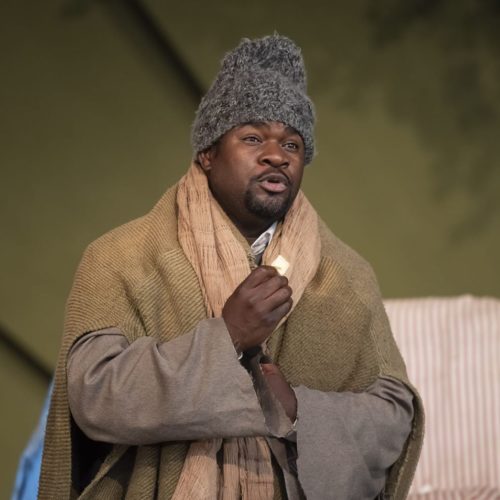
Welcome to the 18th work in the Slipped Disc/Idagio Beethoven Edition
Piano trios, opus 1 (1791-5)
Beethoven laboured long and hard to get these three trios ready for publication. He wrote the first in Bonn when he was just 20 in 1791 and revised it extensively. The second and third followed in Vienna in 1794-5 and all three were premiered and published together.
The first, in E-flat major, owes its trills and thrills to Mozart, who had just passed away, but the length of line and the confidence of expression was pure Beethoven, a swagger sustained in the G major of the second trio. Haydn is said to have taken exception to the third trio, in C minor, though it’s hard to see why. The opening page is so infectious that it sold like hot wurst in the streets of Vienna, giving Beethoven his first real payday and allowing him to continue his vocation without resort to hackwork.
The choice for listeners is threefold – between an established trio like the Beaux Arts, an ad hoc star combo or a bunch of youngsters taking their first steps. Given the earliness of the works and their instant appeal to Viennese amateurs, I’m inclined to the last.
There are many temptations – an early 1950s set by Pablos Casals and pals at his festival hideway in Prades is near irresistible.
And Heifetz, Piatigorsky and Lateiner are on no account to be missed
The Beaux Arts are silky-smooth, sure-footed, a little bland.
Barenboim, Zukerman and DuPre will not disappoint the star-gazers.
I would also throw into the mix Canada’s current Gryphon Trio (Roman Borys, Annalee Patipatanakoon and Jamie Parker), who have to my ears just the right blend of freshness and integration.
